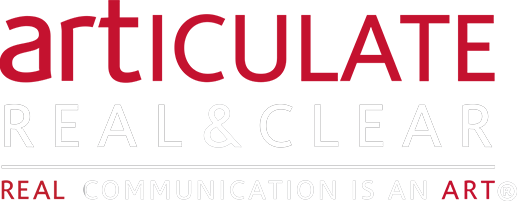Sometimes, when speaking to an audience or a colleague, we don’t want to come across as too much, or too pushy, or too loud, or too strong. So, we raise the intonation at the end of our sentences like a question: “I think the best thing for the company would be for everyone to get a raise? I wanted to run that by you?” This vocal style shift or habit is called upspeak, and it’s often employed in an attempt to communicate without offense or in an attempt to defer status.
Some may hear it as questioning, but more importantly, it is an unfinished energy of a line. Upspeak is nuanced and is an attempt to lessen impact when there don’t appear to be other tools available.
Upspeak Affects the Landing
When communicating, upspeak can affect the landing and at ARTiculate, we say the landing is more important than take off. How we’re received by the audience matters. While our intention is important, what matters most is how the other person hears us. Upspeak affects this landing.
This style of speaking lands with the audience as insecure or less confident. They perceive that we don’t know what we’re talking about. We sound insecure, while we’re actually quite secure in our ideas. We’re just concerned about how that might come across. How it might land!
Assumptions About Insecurity
I’d like to stop blaming people, and especially women, for the way that upspeak sounds as though they don’t know what they’re talking about. I’d like us all to let go of the idea that it’s all about insecurity.
What if our reaction to upspeak is actually about our own insecurity as the listener? Maybe women are using upspeak because they don’t want to intimidate us. Maybe I’m coming across as someone who they’re having to be careful with. Rather than using upspeak because they’re insecure, they’re trying to avoid making me feel uncomfortable or challenged.
Granted, it isn’t the most efficient means of communicating. It doesn’t mean, though, that they are insecure. And for us and our judgement, it shouldn’t mean that they’re sabotaging their job chances in an interview. It shouldn’t mean a client decides against their project because they use upspeak.
Rarely have I worked with a powerful woman who uses upspeak who’s insecure. When I talk to her, what we come to understand is that she’s worried about coming across as “too much.” She’s worried about being part of the “too club:” those people who’re really successful, have made their way in the world, and from early on they’ve been told they’re too much, too fast, too smart, too assertive, too pushy, too perky, too, too, too! And in order not to come across as too pushy, too strong, too bossy, and the other B word, they start incorporating upspeak to soften things.
Not a Gender Issue
While it’s often seen as a gendered issue, both men and women use upspeak. We all use upspeak. We use it for all different situations. Canadians use upspeak and people from the northern part of the United States of America may use upspeak because it’s part of their dialect.
All vocal style shifts have a purpose. We started using upspeak because it worked for us to make our audience more comfortable.
Leaving An Impact
When we coach people, we coach them to land their lines. Men and women, both. Because in the essence of communication it’s usually more effective, and yet, upspeak is a tool. It’s a tool that can be used. Not only to ask questions, but also to soften things.
Just remember, our landing matters in communication, and we want our audience left with a lasting impression of authority, trust, and authenticity. To our own ears, removing the upspeak from our sentences may sound forceful. It may feel like we’re being too pushy. However, when our audience receives it, it lands as trustworthy and authentic – which is what we want as leaders and effective communicators.
You do need to practice. If you have been lifting the ends of your lines, it can feel too intense, pushy or downright rude to start landing them. There are a few things to help practice the shift. 1. Record yourself and listen back can be helpful. 2. Connect with one or two other friends or colleagues who are committed to becoming more aware and practice on a zoom lunch or practice a presentation with each other. And, 3. Coaching with a professional who hears it as a shift and not a horrifying habit.
So back to the beginning – we can land our message – our sentence and do the observation, “The best thing for the company is for everyone to get a raise. I’m running it by you first.”
Hilary Blair is a leadership keynote speaker based out of Denver, CO, and is the co-founder of ARTiculate: Real & Clear. She is also a highly regarded, actor, improviser, facilitator, voice-over artist, and voice expert coach. Contact us today to learn more.





